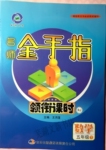题目内容
—He to the meeting. Have you informed him of it?
—Sorry. I to.
A. hasn’t come; am going
B. didn’t come; have forgotten
C. hasn’t come; forgot
D. doesn’t come; will have
C
解析:
第一句话Have you informed him of it?
暗示了时间状语so far;而第二句话暗含时间状语then,指当时发生的动作。

 名师金手指领衔课时系列答案
名师金手指领衔课时系列答案You are near the front line of a battle .Around you shells are exploding ;people are shooting from a house behind you .What are you doing there? You aren’t a soldier .You aren’t 36 carrying a gun .You’re standing in front of a 37 and you’re telling the TV 38 what is happening.
It’s all in a day’s work for a war reporter ,and it can be very 39 .In the first two years of the 40 in former Yugoslavia(前南斯拉夫),28 reporters and photographers were killed .Hundreds more were 41 .What kind of people put themselves in danger to 42 pictures to our TV screens and 43 to our newspapers? Why do they do it ?
“I think it’s every young journalist’s 44 to be a foreign reporter,” says Michael Nicholson, “that’s 45 you find the excitement .So when the first opportunity comes ,you take it 46 it is a war.”
But there are moments of 47 . Jeremy Bowen says, “Yes ,when you’re lying on the ground and bullets (子弹)are flying 48 your ears ,you think: ‘What am I doing here? I’m not going to do this again.’ But that feeling 49 after a while and when the next war starts , you’ll be
50 .”
“None of us believes that we’re going to 51 ,” adds Michael .But he always 52 a lucky charm(护身符)with him .It was given to him by his wife for his first war .It’s a card which says “Take care of yourself.” Does he ever think about dying? “Oh, 53 ,and every time it happens you look to the sky and say to God, ‘If you get me out of this ,I 54 I’ll never do it again.’ You can almost hear God 55 ,because you know he doesn’t believe you .”
36.A.simply | B.really | C.merely | D.even |
37.A.crowd | B.house | C.battlefield | D.camera |
38.A.producers | B.viewers | C.directors | D.actors |
39.A.dangerous | B.exciting | C.normal | D.disappointing |
40.A.stay | B.fight | C.war | D.life |
41.A.injured | B.buried | C.defeated | D.saved |
42.A.bring | B.show | C.take | D.make |
43.A.scenes | B.passages | C.stories | D.contents |
44.A.belief | B.dream | C.duty | D.faith |
45.A.why | B.what | C.how | D.where |
46.A.even so | B.ever since | C.as if | D.even if |
47.A.fear | B.surprise | C.shame | D.sadness |
48.A.into | B.around | C.past | D.through |
49.A.returns | B.goes | C.continues | D.occurs |
50.A.there | B.away | C.out | D.home |
51.A.leave | B.escape | C.die | D.remain |
52.A.hangs | B.wears | C.holds | D.carries |
53.A.never | B.many times | C.some time | D.seldom |
54.A.consider | B.accept | C.promise | D.guess |
55.A.whispering | B.laughing | C.screaming | D.crying |